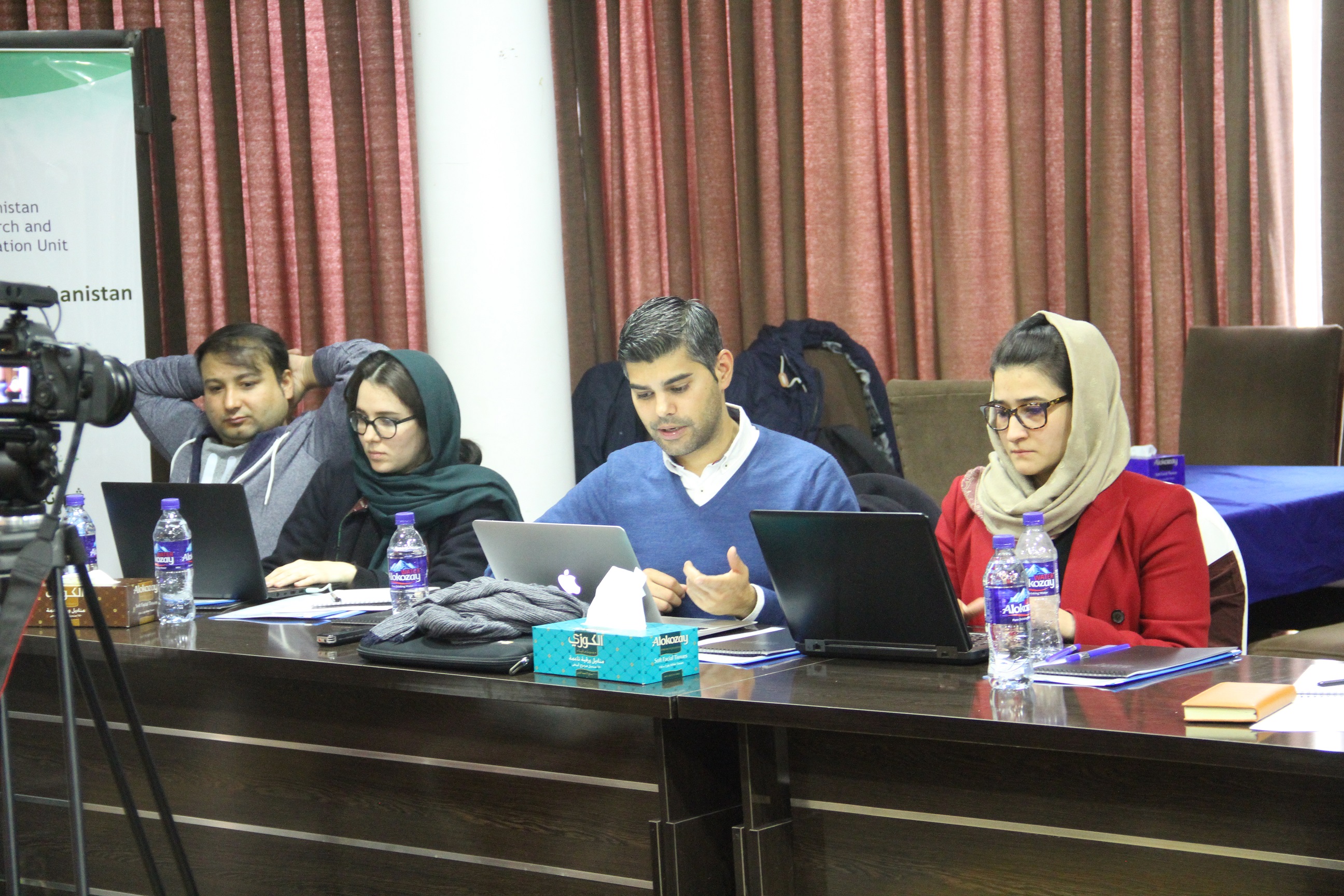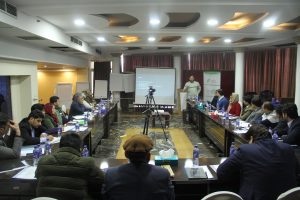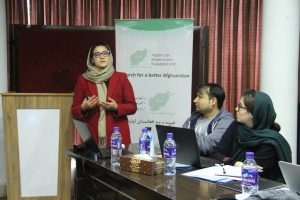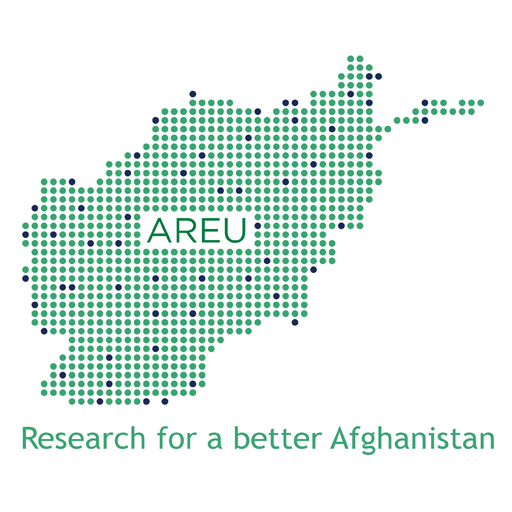
23 Feb Workshop on Research & Drug in Afghanistan
On Monday, 10 February 2020, AREU organised a workshop on research and drugs in Afghanistan. The workshop gathered representatives from government institutions as well as NGOs and civil society working on drugs.
In her opening remarks, Dr Orzala Nemat went over AREU’s history of working on drugs, with the goal to produce quality ground research that will allow policymakers and implementing organisations to implement better informed policies and strategies. She introduced AREU’s staff and their extensive desk review work on drugs research. She thanked the participants for the opportunity to share data and exchange views, and thanked Mrs. Ghezaal Habibyar, Deputy Director of Open Society Foundation Afghanistan, for the support of OSF for this project.
Dr Nishank Motwani, Deputy Director of AREU, welcomed the participants of the workshop. He then explained AREU’s new OSF-funded project on drugs, based mainly on engagement. AREU is working on the launch of a Centre of Excellence on Drugs and Excellence, and wants to do it in cooperation and collaboration with stakeholders, especially practitioners. The goal is for AREU to hear from the participants, from their experience and knowledge, to inform AREU’s activities. Participants come from different backgrounds, and AREU wants to be able to capitalise on this variety of experiences and knowledge - drugs is a mutli-faceted challenge. AREU has done wide research on drugs - 22 reports in ten years, but now needs feedback on how to engage, how to produce useful policy solutions. What is it that AREU can do to support better informed programmes?
The goals of the discussion were:
- To kickstart a dialogue that promotes knowledge exchange among researchers, program implementers and policymakers/influencers to effect positive and sustainable change in the drug space.
- To work out how AREU’s research can be useful to you (the participants) in your work.
- To identify what contextually relevant drug policy interventions are needed and how they could be rolled out in a sustainable manner.
- To learn from each other's professional experiences so as to challenge assumptions and to promote collaboration.
 To appreciate the multidimensional nature of the drugs challenge and to avoid so-called silver bullet/simple ‘solutions’.
To appreciate the multidimensional nature of the drugs challenge and to avoid so-called silver bullet/simple ‘solutions’.
- AREU research staff presented their findings from a wide desk review on livelihoods, on the role of local governance, on insurgency, on insecurity, on corruption, on service delivery, on gender, on environment, and on counter narcotics policies. During the following Q&A, participants asked questions on a potential evaluation of the Kandahar Food Zone, on the livelihoods of farmers versus the lives of drug dependent persons, on viable alternative crops, on misconceptions about opium poppy, on awareness and community-based campaigns, on the role of neighbouring countries, on the failure of the Helmand Food Zone, on corruption, on the routes to Europe, and other.The discussion was followed by a group exercise, where groups were tasked to answer the following questions:
- What do you think is working well in the drug space and why?
- What do you think are the key gaps/challenges in the drug space and what can be done about them?
- What feasible ideas can you share that you think can affect positive change?
Answers included the relative success of community-based rehabilitation, based on the consent of the drug dependent person to get treated, the role of urbanisation and development in fighting drugs, the role of religious clerics, evidence-based research to better inform policies, lack of awareness on the effect of drugs, and others.

